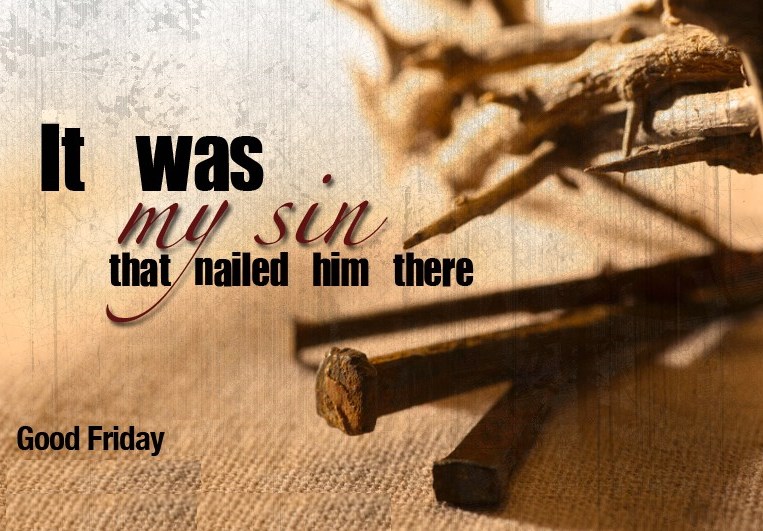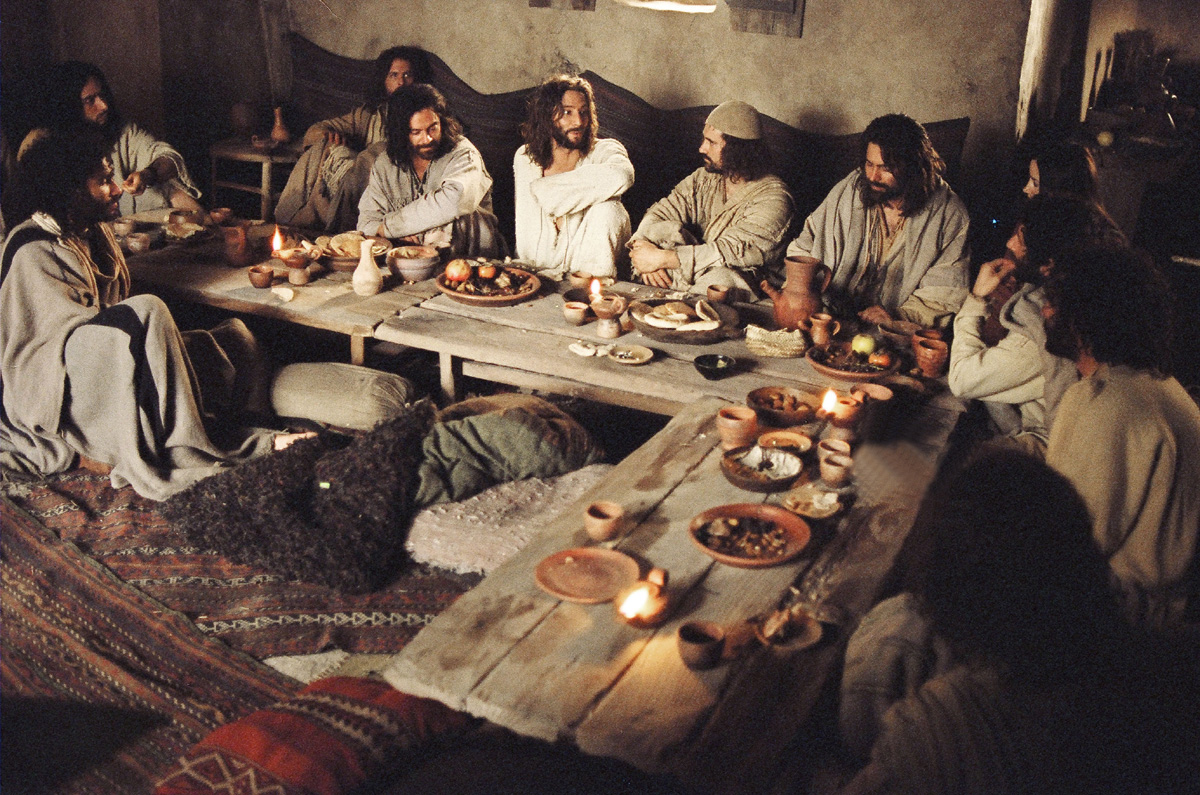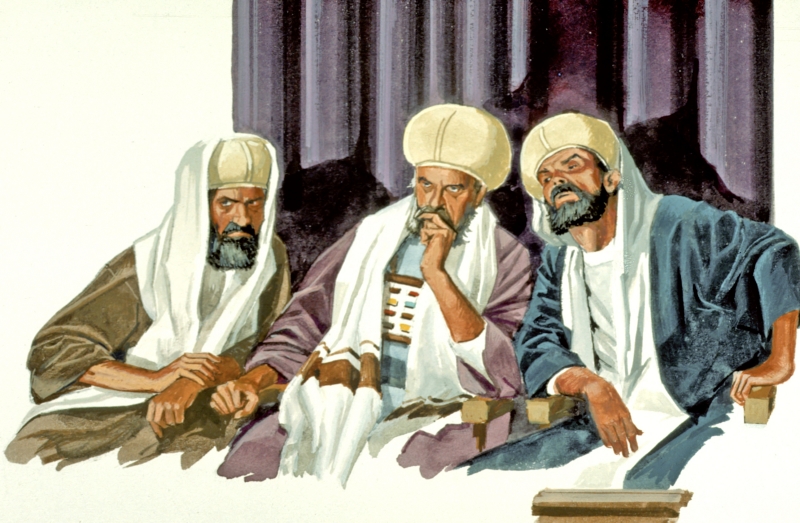 Photo Credit: GoodFridayQuotes2015.com
Photo Credit: GoodFridayQuotes2015.com
[Adapted from the Archives]
It was a day like no other day in history. For years we lived in countries where Christianity was a minority religion. While the few of us passed this week in reflection and wonder, it was, of course, just another week for most of our friends and colleagues. Easter had its name – Eid Al-Qiyama (“Feast of Resurrection”) – but Good Friday where we lived was shrouded in the ordinary. For Jesus, and all who have experienced life through his teaching, example, and sacrifice, this day was and is wholly extraordinary.
Good Friday – good for us, hard for Jesus. The events of his trial, crucifixion, death, and burial are all recorded with great detail in the four Gospels. They are riveting accounts of this terrible and triumphant day – Matthew 26:57-27:61, Mark 15, Luke 22:66-23:56, John 18:28-19:42.
Jesus had no opportunity to sleep in the hours of night before this dawn. From the garden where he prayed, he was forcibly taken into the custody of the high priests. Through the early morning hours, he was bounced brutally between the Sanhedrin, the high court of Israel, and the Roman authorities (Pilate and Herod Antipas). While in their custody, Jesus endured hostile interrogation, false accusations, trumped-up charges, relentless attempts at public humiliation, and repeated beatings. Yet, he somehow retained his full faculties, responding to the authorities, when necessary, with great wisdom and understanding of both the proceedings and the people. In the midst of all this trauma, he even made eye contact with one of his dearest friends and followers, Peter, who was hiding nearby…in his own painful moment.
The outcome of all the wrangling between the Jewish and Roman officials was an unwarranted, undeserved death sentence. Execution by crucifixion. Pilate even washed his hands of the matter, literally, declaring Jesus innocent but still consenting to the death sentence. He didn’t know then but the “blood” he tried to wash off his hands was truly innocent. Still, it wasn’t Pilate who put Jesus on that cross, nor was it Caiaphas, head of the Sanhedrin. Not a Roman, nor a Jew.
Jesus’ death, that day, was an outworking of a divine plan. We cannot begin to understand the holiness of the Father, the resolve of His Son, or the steadfastness of the Spirit. This three-in-one God orchestrated a path for us, His fallen and broken people, to be restored to Him. That we, though wrecked by sin, can be whole again and one in Him, in that unity of Father, Son, Holy Spirit (John 17:21) is a miracle of grace.
Jesus gave his life for us that day. It was not taken from him. He laid it down. For us. Though completely undeserving, we are ransomed and redeemed. At such a great cost. This Jesus. This life. This cross.
It Was My Sin That Held Him There – Greg Morse
Jesus spoke seven times during the three hours he hung on that cross. Each time he spoke, as in all the other times his words have been recorded, there was something for all of us. If you don’t know what he said, in those seven brief cries from the cross, read them and discover more about him…and about us.
Just before he died, he cried out, “It. Is. Finished.” What? What was finished? His life…oh no…not at all…that story comes later. His work? Not completely…for he continues interceding for us (Romans 8:34). What was finished? The perfect sacrifice – the lamb without spot or blemish – his life for ours. “The Lamb of God who takes away the sin of the world” (John 1:29). Hallelujah!
‘Finished’ – What the Son Cried as He Died – Scott Hubbard – Desiring God
There is so much more to say about this day and the people present. Pilate’s wife who warned Pilate about ruling against this innocent man. Judas Iscariot, Jesus’ betrayer, who tried to return the money and killed himself in remorse that same day. Simon of Cyrene, a pilgrim, who was drawn into the dreadful drama of that day to carry Jesus’ cross when he could no longer. Barabbas, a notorious criminal, who gained his freedom, through a strange twist of the day. The nameless thief on the cross who cried out in repentance to Jesus. The Roman centurion who in his witness of Jesus all those hours professed faith in him. John, Jesus’ closest disciple, and Jesus’ mother to whom Jesus gave each other. The women, lives changed by their faith in Jesus, who stayed at the foot of the cross through all the horror of his crucifixion. Nicodemus, a Pharisee and a Christ-follower, who tried to appeal for Jesus with the Sanhedrin. Joseph of Arimathea, another believing Pharisee, who went to Pilate to receive Jesus’ body for burial, to place in his own tomb.
So many stories of lives changed. Good Friday. This marked the day of Jesus’ trial, his death, and his burial, but it does not mark the end of the story. It’s Friday…but Sunday’s coming.*
 Photo Credit: popgodblog.com
Photo Credit: popgodblog.com
[Postscript: In the links are several beautiful songs of worship. Tributes to the Lord on this day. Don’t miss the articles and the great sermon “It’s Friday But Sunday’s a Coming” by Rev. S. M. Lockridge.]
After a Crash-and-Burn Year, Why Care…About Good Friday? – Ann Voskamp
Holy Week – Day 6: Good Friday’s Trial, Crucifixion, Death, Burial – Mary Fairchild
The Way of Jesus #3: Unless a Seed – James Nored
The Way of Jesus #4: Who Do I Say Jesus Is? – James Nored & Phil Ware
It Wasn’t Nails that Held Him to the Cross – Blog by Michele Perry
Spotify Playlist for Holy Week – Beth Wayland
YouTube Video – It is Finished – Matt Papa
YouTube Video – Forever – Kari Jobe
YouTube Video with Lyrics – The Wonderful Cross by Chris Tomlin & Keith Getty
YouTube Video with lyrics – The Power of the Cross – Kristyn Getty
YouTube Video with lyrics – Lead Me to the Cross – Hillsong
*YouTube Video – It’s Friday but Sunday’s a Coming – S. M. Lockridge
YouTube Video – Skit Guys – Good Friday
YouTube Video – Passion Song – The Story of Holy Week (Lyric Video) by @scartermusic – powerful.
 Photo Credit: We Love the Bible, Pinterest
Photo Credit: We Love the Bible, Pinterest

 Photo Credit –
Photo Credit – 

 Photo Credit:
Photo Credit:  Photo Credit:
Photo Credit:
 Photo Credit –
Photo Credit –
























